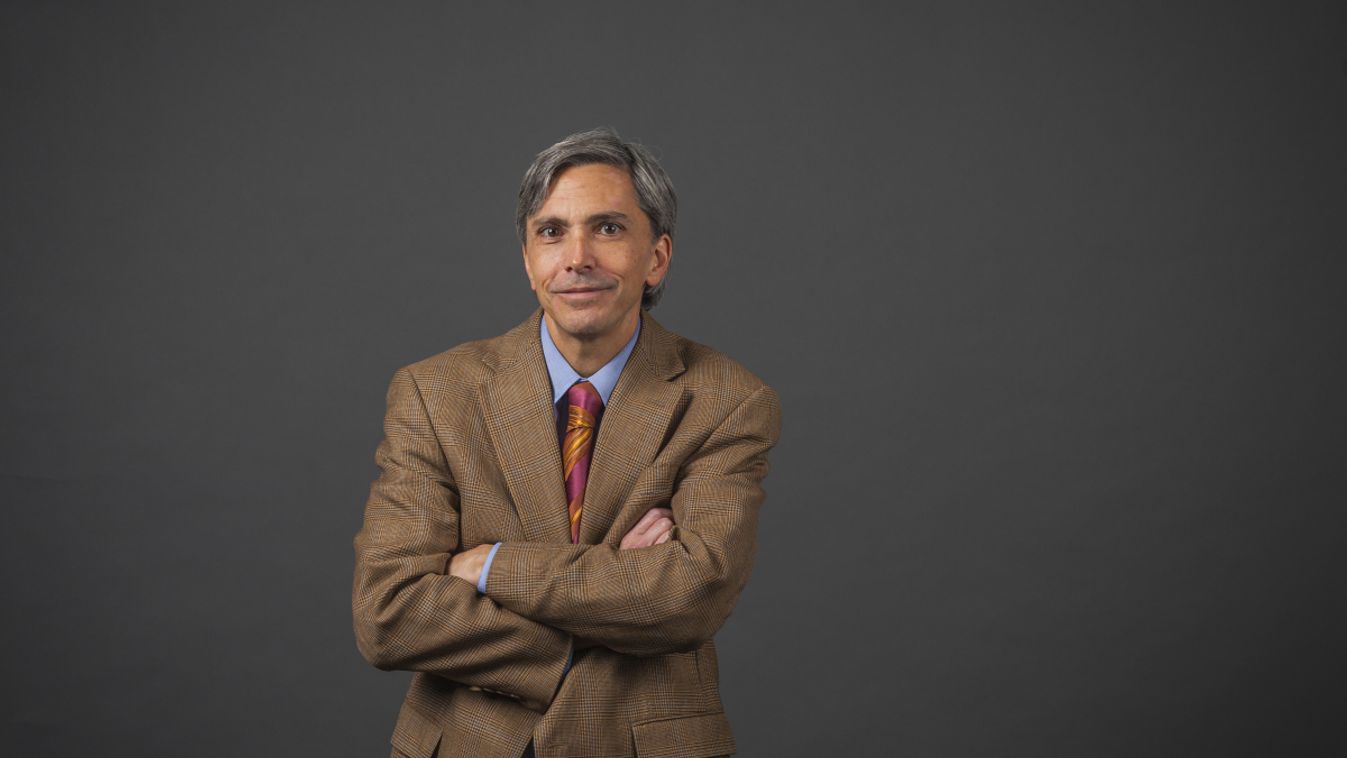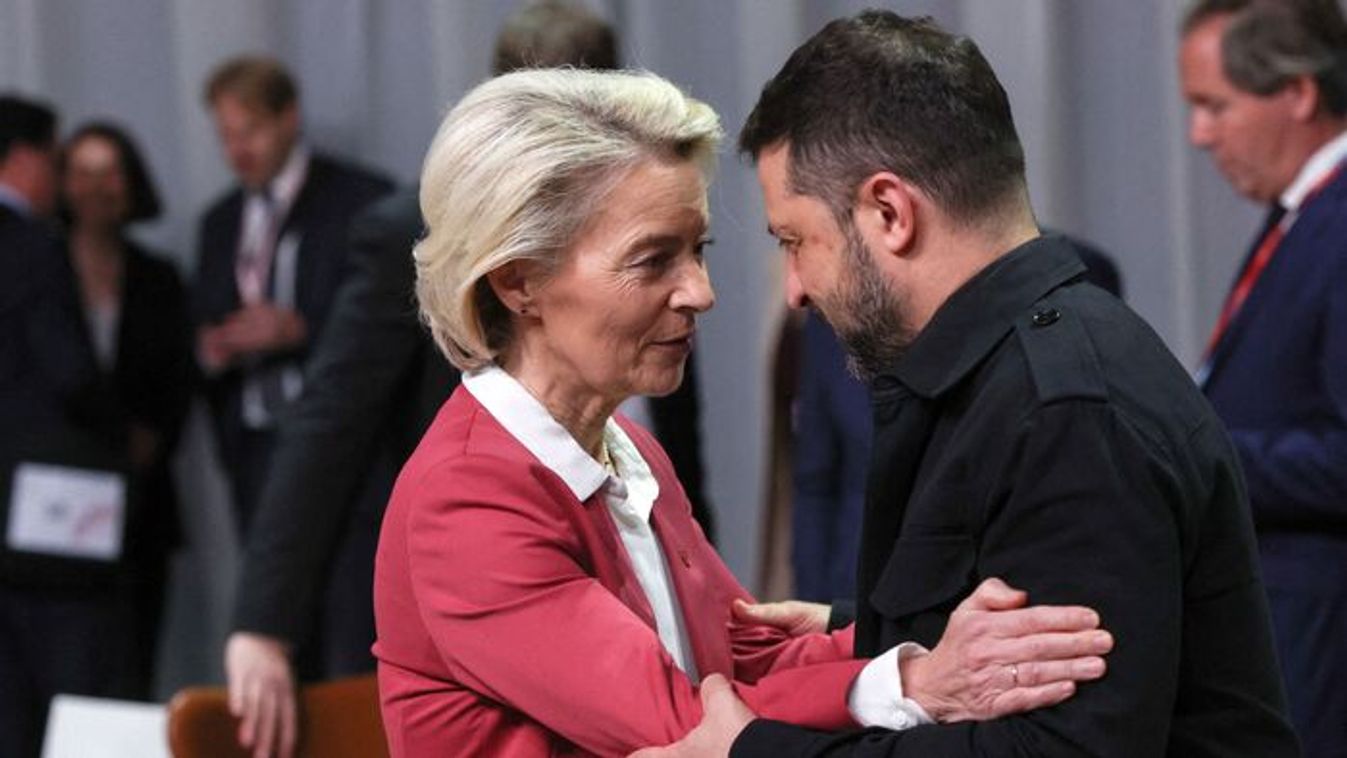Csak két perc: videón a legdurvább ukrán fenyegetések Zelenszkijtől a rettegett ukrán őrnagyig

Magyarország katonai megszállásától a választási eredmények megtámadásáig – minden belefér az EU-s csatlakozást követelő ukrán megszólalók szerint.

“Distinctions that were once taken for granted—citizen versus stranger; male versus female; criminals versus the law-abiding—do not come easily, if they come at all, to many in the West – Craig S. Lerner Professor at Antonin Scalia Law School, George Mason University pointed out one of the narratives of abolishing the death penalty in a conversation with Lénárd Sándor.

If a foreigner is asked what the unique features the US Constitution has, the answer most likely includes the right to bear a firearm and the capital punishment. Even though the United States is an outlier in the Western World in its retention of the death penalty, there have been fierce constitutional as well as philosophical debates about it and the question is almost always on the docket of the Supreme Court in each year. Can you shed some light on the constitutional background of the capital punishment?

Until the Second World War, legal systems around the world used capital punishment. There were pockets of abolition before then: Portugal banned the death penalty in 1867 and within the United States, the State of Michigan banned the death penalty in 1847. But these were outliers. Well into the modern age, throughout the world, it was thought just and proper to execute the worst of convicted criminals.
After the Second World War, at least in the Western world, enthusiasm for the death penalty waned. In 1972, the U.S. Supreme Court came close to formally abolishing the death penalty. Its authority for doing so was doubtful. The U.S. Constitution prohibits “cruel and unusual punishment,” but it was unclear how a punishment that had been practiced for centuries was “unusual.” Furthermore, the Constitution refers to “capital” crimes, rendering all the more questionable how a punishment specifically contemplated by the Constitution was “cruel.”
In any event, in a development that shocked the U.S. Supreme Court, and the nation’s legal and intellectual elites more generally, the American public overwhelmingly denounced the 1972 decision. Roughly three-quarters of American states promptly re-enacted death penalty laws. Sensing the direction and violence of the political winds, the Supreme Court issued a decision in 1976 that retracted its earlier one and gave its cautious approval to capital punishment.
At that point, American and European death penalty practice diverged. In 1977, France used its notorious guillotine for the last time. England had already abolished the death penalty, and by 1990 the practice had ceased to exist throughout Western Europe. After the fall of the Soviet Union, nations in central and Eastern Europe rapidly followed suit.
Meanwhile, the death penalty was making a comeback in the United States. Ramping up in 1980, capital punishment peaked in 2000, when nearly 100 people were executed. It is worth recalling that America is a big country with much higher rates of violent crime than in Europe; so even at its peak, the punishment was rarely applied, and exclusively for murderers whose crime, for whatever reason, horrified the local community.
But
American elites were sorely embarrassed by this feature of American exceptionalism.
(Gun rights is another source of embarrassment.). Mounting a long war of attrition, mostly in the courts but also in the broader public sphere, death penalty abolitionists made it increasingly costly to impose capital punishment. Because of endless appeals, the length of time between a murder and an execution stretched into decades. For example, weeks ago, the State of Oklahoma executed a murderer who had committed his crime in 1985.
There are countless legal grounds for challenging a death sentence. For many years, racial bias was a favorite, but in recent years the method of execution has been the preferred choice of argument. In the eyes of death penalty critics, anything short of an instantaneous and painless death constitutes “cruel and unusual punishment.”
Most American prosecutors have given up bringing capital cases, even for horrible murders, because of the staggering cost of prevailing at trial and then defending a death sentence in the interminable appeals.
This is especially so in recent years when the “best and brightest” of American lawyers are essentially lining up to represent defendants in capital cases, without even expecting a fee. American voters, dismayed by the cumbersome process, have increasingly withdrawn their support. Virginia, where I live, which in its history has executed more people than any other state, abolished the death penalty months ago. The number of executions in the United Sates decreased in 2021 to 11—a 30-year low.
You’ve written about the waning use of the death penalty in the United States and yet you’ve also observed that the death penalty was sought and imposed on the surviving terrorist responsible for the Boston Marathon bombing. Can you tell us about that case and what it indicates about the persistence of the death penalty in America?
The Boston Marathon bombing in 2013 was one of the most despicable crimes on American soil in recent memory. The Tsaranaev brothers, having been received by America as refugees from Chechnya, detonated two explosive devices near the finish line at the famous race. Three people died and dozens of others were grievously wounded. The brothers fled, killed a police officer in an ambush, and were finally captured, with one of the brothers dying in a shootout.
Boston is one of the most politically leftist places in America. The state of Massachusetts had abolished the death penalty in 1984. The U.S. president at the time, Barack Obama, called the death penalty “deeply troubling.” And yet, the Department of Justice that President Obama oversaw sought the death penalty for the surviving brother in a federal prosecution.
At the trial, a celebrity Catholic nun, Helen Prejean, testified. She assured the jurors—with wild implausibility—that the defendant had “repented.” The jurors didn’t believe it and sentenced him to death. The basic reality, which this case reflects, is that
for certain crimes, anything less than a death sentence seems like a grotesque injustice,
even to many people who would otherwise profess themselves to be opponents of the death penalty.
As could have been expected, Tsarnaev’s death sentence (but not his murder conviction) was overturned on appeal, for reasons too arcane to discuss. President Biden has announced a moratorium on federal executions, so one might think that would bring the case to a resolution. But President Biden ordered his lawyers to take the case to the U.S. Supreme Court. The Court heard oral argument a few months ago, and it seems likely to reverse the appellate court and reinstate the death sentence.
During the Supreme Court’s oral argument, Justice Barrett challenged the government lawyer to explain why exactly he was there, seeking to reinstate the death sentence, when the president has announced he has no actual intention to execute the convicted murderer. As Justice Barrett observed, if the government prevailed, Tsarnaev would be “relegated to living under a death sentence that the government doesn’t plan to carry out?” The government lawyer fumbled for words, finally saying that the “sound judgment of the jury should be respected.”
But if the Biden Administration were really interested in respecting the jury verdict, wouldn’t it seek to impose the death sentence the jury had voted for?
Exactly. It’s an untenable position, but nonetheless
it captures the experience, loaded with inner contradictions, of the American death penalty today.
It persists, but in such agonized embarrassment that one wonders why we bother to retain it. At this point only half the American states have the death penalty on the books, and within those states, only a tiny minority of counties have prosecutors inclined to bring capital cases. To be executed in America today, even for a horrible murder, requires a concatenation of so many unlikely events that it is, as the Supreme Court mused decades ago, like being hit by lightning.
But as long as the United States keeps the death penalty on its books, even if it is rarely used, the EU is certain to criticize it. This idea is stressed by the recent announcement of the French President, Emmanuel Macron, who promised to support the global abolishment of the death penalty once he will be President-in-Office of the Council of the E.U. What this narrative and what is your view about it?
For decades, EU bureaucrats have hectored nations throughout the world to abolish the death penalty. The United States is a favorite target of these attacks. A few years ago, as the State of Texas was preparing to execute a murderer, the President of the EU reminded Governor Perry that the elimination of the death penalty was “fundamental to human dignity.” The Governor responded that while he “respected” his European friends, “Texans long ago decided that the death penalty is a just and appropriate punishment for the most horrible crimes committed against our citizens.”
American politicians cannot be easily bullied by the EU; not so for politicians in less powerful countries.
When Sri Lanka, a nation wracked by terrorism and drug trafficking, considered restoring the death penalty two years ago, the E.U. threatened to withdraw its favored trade status with the tiny and relatively poor island nation.
It is worth considering how such heavy-handed actions seem to people in other parts of the world. Imagine a merchant in Sri Lanka. He is appalled by the terrorist attacks that have wracked his nation, and he has supported efforts to institute the death penalty to punish those who have done so much harm to others and have brought his country into disrepute. He is baffled by EU threats to deprive Sri Lanka of favored nation trading status because of this domestic policy choice. Why is killing convicted terrorists and drug dealers an abomination when aborting unborn children—a practice the merchant has read is commonplace in the West—not? He cannot reconcile European attitudes in this regard but does not feel the need to do so: Europeans can govern themselves. Why, however, do they propose to dictate morality to Sri Lankans? And why single out Sri Lanka? Saudi Arabia executes many people, the merchant knows, and its leaders are feted in capitals throughout the West.
In your account, the death penalty is one of several areas—others include family law and immigration—in which European Union leaders, and Western leaders generally, cloak themselves in moral robes. But this raises a tension between sovereignty and transnational requirements.
Yes,
the death penalty exposes an inner contradiction in the reigning principles of the Western world.
On the one hand, we are said to uphold democracy and self-determination, and to value cultural diversity. On the other hand, we are said to uphold human rights.
It doesn’t take long to realize that these principles are not perfectly harmonious. If the nations of Central and Eastern Europe conducted a plebiscite on the death penalty, it is possible, and even likely, that many would adopt it. This is so despite the experience under Communist rule and the deep wariness of criminal justice systems that history engendered. But there will be no such plebiscites, as long as EU leaders threaten banishment for any nation that fails to abide by its commands on the death penalty. Apparently, the devotion to a contestable vision of “human dignity,” which supposedly precludes the imposition of the death penalty, trumps the respect for cultural diversity and self-determination.
This reminds me of a similar phenomenon. I am wondering how you see recent EU threats to suspend funds from Member States, based on a concept called “the rule of law.”
There are phrases—“the rule of law,” “human dignity,” “democratic values”—that are much bandied about these days. Whenever I hear them, I feel the intellectual ground crumbling beneath my feet. I am never exactly sure what is intended.
In general, the European Union, like any organization, can make adoption of certain substantive principles a precondition of inclusion. For example, if the EU wants central tenets of its organization to include a commitment to transgender rights and the abolition of the death penalty, so be it.
What is questionable is when substantive disagreements are camouflaged in moralizing platitudes,
as I pointed out in earlier article with regards to immigration law and policies.
To return to the death penalty, there are credible arguments that can be made for abolition. Nonetheless, the claim that the principle of “human dignity” requires this position is unpersuasive. If there is a modern philosopher most associated with the concept of human dignity, it is Immanuel Kant. He, of course, was a proponent of capital punishment.
In your opinion, what explains the deep Western devotion to the abolition of the death penalty? What does it suggest about the Western society?
The first point to make, which is implicit in your question, is that the devotion to abolition seems peculiarly Western. Political leaders and public intellectuals in the Western world often cast the movement towards abolition as a global phenomenon, but as I pointed out in an article a few years ago, this is inaccurate. The United States is not alone in using capital punishment. China, Japan, India, and much of the Islamic world retain the death penalty.
As to what explains
the Western devotion to the abolition of the death penalty, there are two ways of looking at it.
One interpretation, preferred by leading intellectuals, such as the prolific American author, Steven Pinker, is that Western ideals, as incorporated for example in the European Convention on Human Rights, reflect the pinnacle of civilization. The rest of the world is ascending, as it were, to the recognition of human dignity and rejection of state-authorized violence that is encapsulated in the formal abolition of capital punishment.
In this interpretation, the entire world is progressing towards the moral truths already accepted by the West.
In Pinker’s words: “Capital Punishment is on death row – if trends continue, it should be gone from the world by 2026.
”There is a less generous interpretation of the abolitionist trend in the Western world. Perhaps the retention of the death penalty is a barometer of civilizational confidence. To shrink from imposing full justice on the worst of criminals reflects a lack of moral confidence. In this view, death penalty abolition is the terminal point of a deep epistemological skepticism.
Distinctions that were once taken for granted—citizen versus stranger; male versus female; criminals versus the law-abiding—do not come easily, if they come at all, to many in the West.
One might recall an observation of Friedrich Nietzsche: “There is a point in the history of society when it becomes so pathologically soft and tender that among other things it sides even with those who harm it, criminals, and does this quite seriously and honestly.”
So, summing up, the abolition of the death penalty can be construed either as a moral ascent or a civilizational decline. I leave it to your readers to judge which of these interpretations is more persuasive.